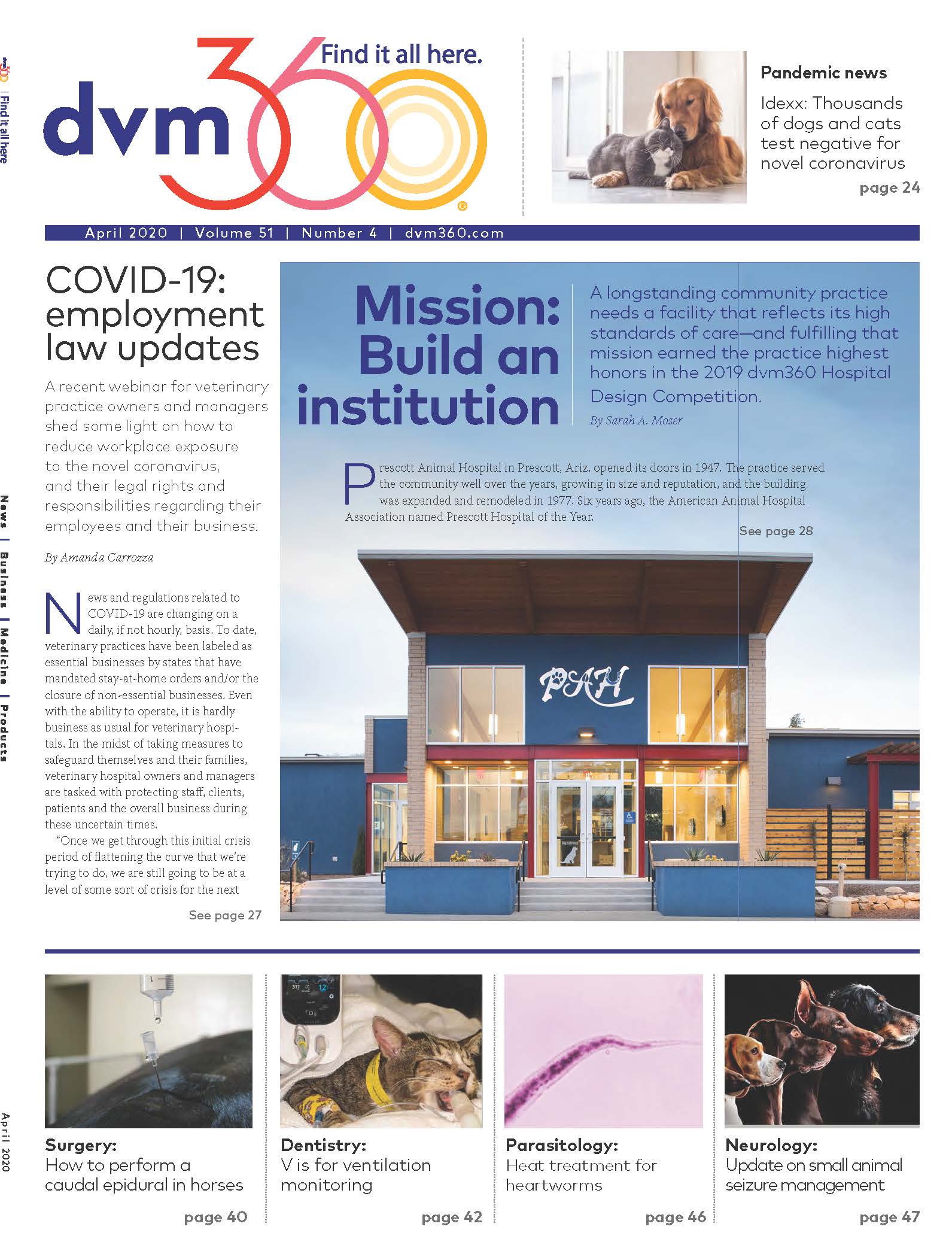Idexx reports negative COVID-19 results for thousands of canine and feline samples
Idexx has tested thousands of dogs and cats, and all came up negative for the coronavirus strain that causes COVID-19.
Despite two reports of dogs in Hong Kong testing positive for COVID-19, national and international health organizations continue to assure pet owners that dogs and cats cannot contract or transmit the disease. Now, global veterinary diagnostics firm Idexx Laboratories is confirming that statement.
Idexx announced earlier this week that the company has evaluated “thousands of canine and feline specimens during validation of a new veterinary test system for the COVID-19 virus” and “seen no positive results in pets to date of SARS-CoV-2, the coronavirus strain responsible for the coronavirus disease 2019 (COVID-19) respiratory outbreak in humans,” according to a company press release.
The specimens used to develop the test were obtained from specimens submitted to Idexx Reference Laboratories for polymerase chain reaction testing. Click here for details about the Idexx SARS-CoV-2 (COVID-19) RealPCR Test.
These new test results support expert recommendations against testing pets for the COVID-19 virus. Pet owners whose dog or cat is demonstrating respiratory clinical signs are advised to contact their veterinarian to test for more common respiratory pathogens.
“Should leading health authorities determine it is clinically relevant to test pets for the COVID-19 virus, Idexx will be ready to make the Idexx SARS-CoV-2 (COVID-19) RealPCR Test available,” says Jay Mazelsky, president and CEO of Idexx Laboratories, in the release. “Pets are important members of our family, and we want to keep them healthy and safe. We will continue to monitor COVID-19 and pet health across our global IDEXX Reference Laboratories network as this situation evolves.”

Newsletter
From exam room tips to practice management insights, get trusted veterinary news delivered straight to your inbox—subscribe to dvm360.